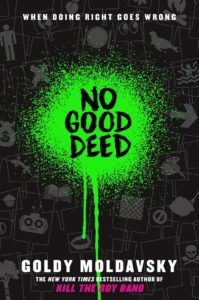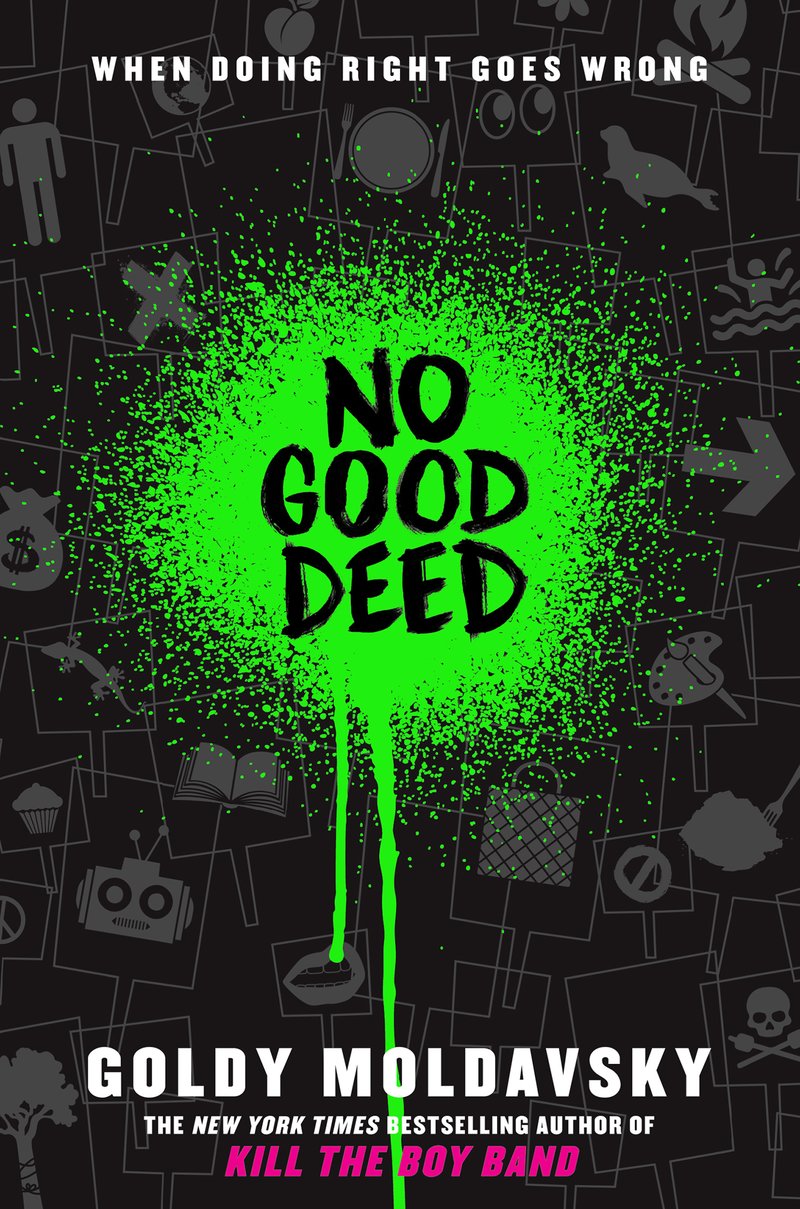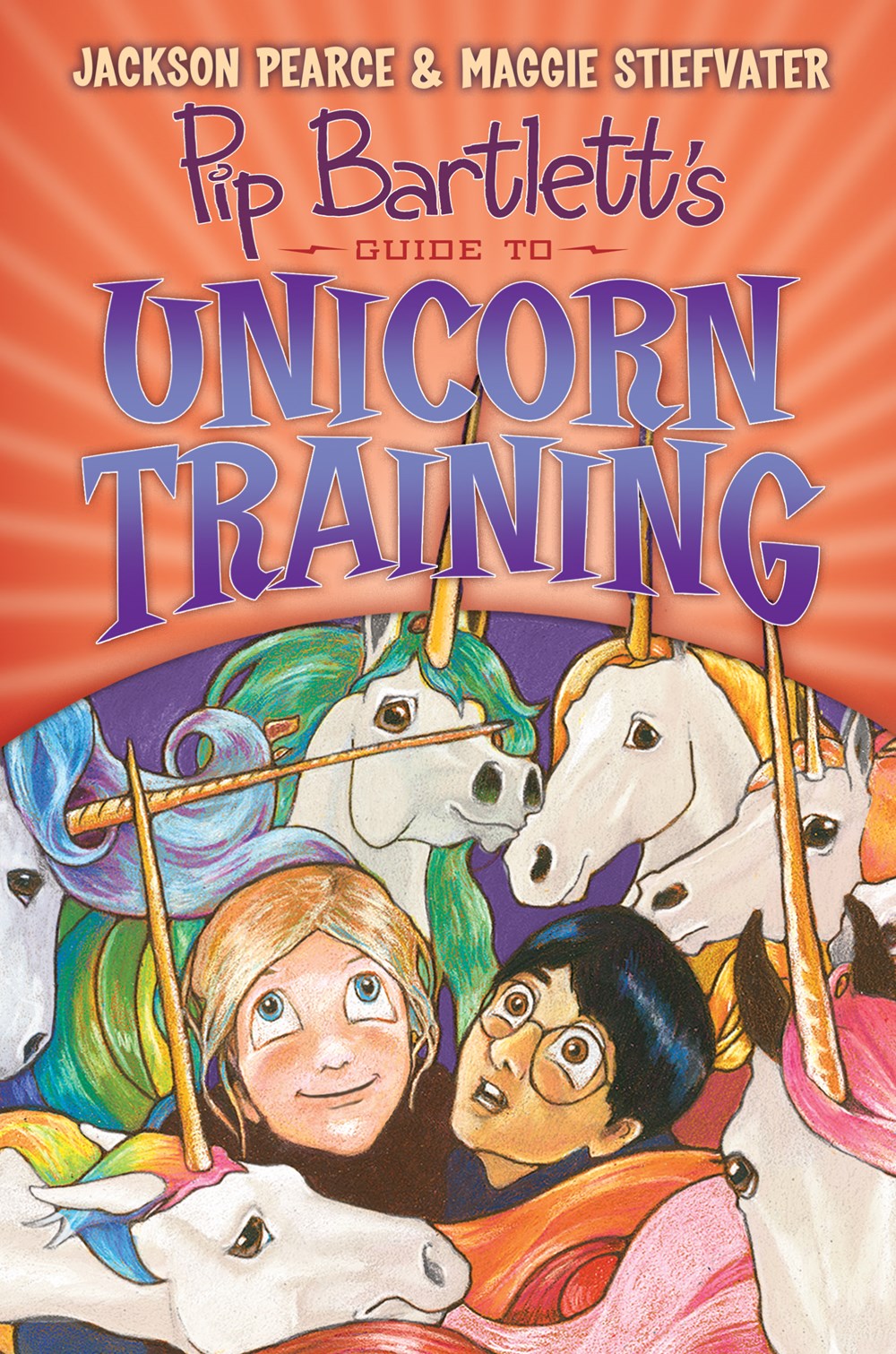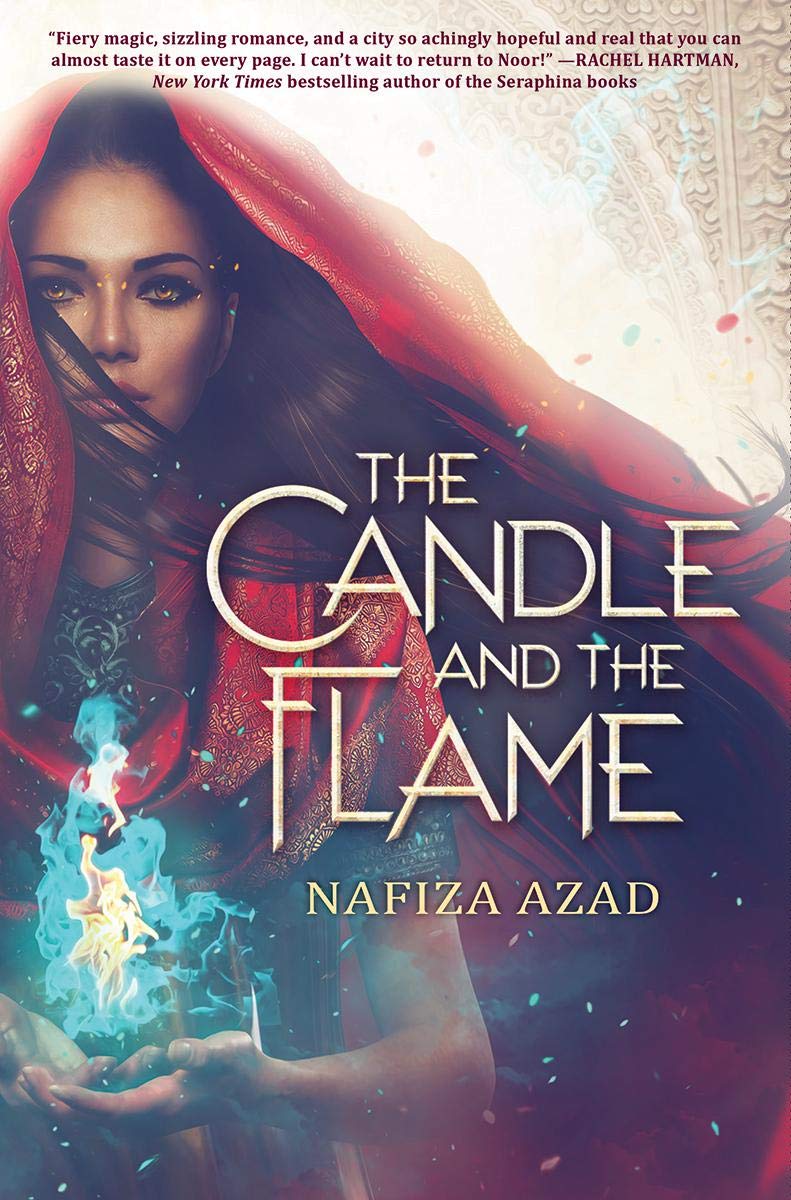 It’s been just over a year since author Goldy Moldavsky’s debut novel Kill the Boy Band was published, and now she’s back with her follow-up No Good Deed. Though No Good Deed isn’t a sequel to Kill the Boy Band, it does take place in the same universe, and readers of Moldavsky’s first novel will enjoy nods to it in her second work.
It’s been just over a year since author Goldy Moldavsky’s debut novel Kill the Boy Band was published, and now she’s back with her follow-up No Good Deed. Though No Good Deed isn’t a sequel to Kill the Boy Band, it does take place in the same universe, and readers of Moldavsky’s first novel will enjoy nods to it in her second work.
The main character of No Good Deed is Gregor Maravilla, a teenager who desperately wants to make a difference in the world. When he lands a much-coveted spot at Camp Save the World – a camp for young activists founded by billionaire tech entrepreneur Robert Drill – he thinks he’s finally gotten his chance.
Unfortunately, it’s looking more and more like that might not be the case. The news that actress Ashley Woodstone will be attending Camp Save the World makes it seem more like a publicity campaign than anything else, and the fact that the cause she’s advocating is “Eat Dirt” is even more suspicious. In fact, a lot of his fellow campers’ causes make Gregor raise his eyebrows. The worst, of course, is the bully advocating for Men’s Rights – but Anti-Robotics and Down with Styrofoam seem a bit extreme too. Can Gregor still make a difference? Does it matter?
As I was reading, I spent a lot of time going back and forth about the book’s representation of activism. While I think Moldavsky is spot-on in satirizing the performative tendencies of a lot of mainstream activism (think Kylie Jenner and the whole Pepsi debacle), the fact that activism has made its way into the mainstream at all is indicative both of how much the world needs it right now and how it is being embraced and normalized by young people. Anything that threatens that momentum is troubling to me.
For the most part, Gregor’s co-campers are passionate about real problems, but No Good Deed mostly shows their engaging in petty infighting rather than in making a difference. Part of this is in service to Moldavsky’s effort to discredit “activism” that is anything but, but part of it is clearly being played up for laughs and plot development. I am confident that Moldavsky in no way intends to trivialize legitimate activism, but the structure of the narrative means that the novel walks a very thin line.
Other than that, No Good Deed is a pretty typical camp novel. Crushes, pranks, and drama are all taken to absurd lengths, and the ending is satisfying on both a narrative and political level (mostly). Though No Good Deed is neither as ridiculous nor as funny as Kill the Boy Band – it’s altogether a more standard YA novel – it’s still a pretty enjoyable read.
A copy of this book was provided by the publisher for review.



